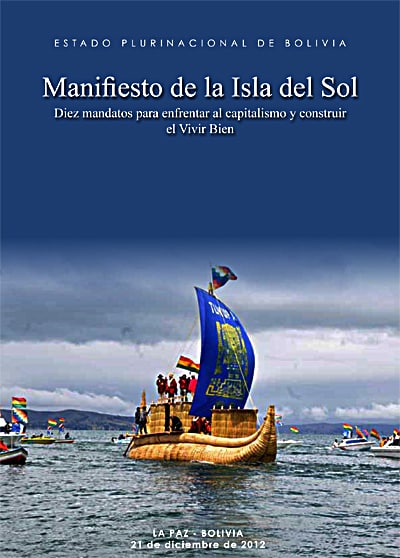food
Evo Morales: ‘Our liberation is for the whole of humanity’

Group of 77 Summit — Plurinational State of Bolivia, 14 and 15 June 2014.
Venezuela: Pace of land expropriations to continue for 'agrarian socialism'

The latest land occupation facilitated by the National Land Institute is underway in the south-western state of Apure. Photo by Victor Hugo Majano/Aporrea.org.
By Ewan Robertson, Merida
January 13, 2014 -- Venezuelanalysis -- This year the Venezuelan government plans to continue its pace of land expropriations in order to move towards what it terms “agrarian socialism”.
According to the 2014 national budget, the government’s National Land Institute (INTI) aims to expropriate 350,000 hectares of land this year.
This compares with the goals of 350,000 and 397,000 hectares of land to be expropriated in 2012 and 2013 respectively, after the government began to increase the pace of land expropriations in 2011.
It is estimated that in the decade between 2001, when former president Hugo Chavez passed a law promoting land redistribution, and 2011, the INTI expropriated 3.6 million hectares of agricultural land.
Green Party USA: Economic/ecological crises of the 21st century -- A deep green alternative

Document of the Greens/Green Party USA, submitted to Links International Journal of So
Ration consumption or ration production?

Review by Don Fitz
Declaration of the Social Movements Assembly of the World Social Forum, Tunisia 2013

By the Social Movements Assembly of the World Social Forum, Tunisia, 2013
March 29, 2013 -- We are gathered here to affirm the fundamental contribution of peoples of Maghreb-Mashrek (from North Africa to the Middle East), in the construction of human civilisation. We affirm that decolonisation for oppressed peoples remains for us, the social movements of the world, a challenge of the greatest importance.
Through the WSF process, the Social Movements Assembly is the place where we come together through our diversity, in order to forge common struggles and a collective agenda to fight against capitalism, patriarchy, racism and all forms of discrimination and oppression. We have built a common history of work which led to some progress, particularly in Latin America, where we have been able to intervene in neoliberal alliances and to create several alternatives for just development that truly honors nature.
Anti-fracking movement goes global, climate-change mafia warns

More than 2000 people protest against coal seam gas in the Illawarra, NSW, Australia, October 2011.
By Farida Iqbal
February 10, 2013 -- Green Left Weekly -- The shale gas industry-commissioned white paper, The Global Anti-Fracking Movement: What it Wants, How it Operates and What’s Next, makes for some very interesting reading. It was produced late last year by Control Risks, an “independent, global risk consultancy specialising in helping organisations manage political, integrity and security risks in complex and hostile environments”.
The white paper focuses on shale gas, but it also discusses coal seam gas. Shale gas is what features in the film Gasland by Josh Fox, which details the destructive effects of “fracking” on communities in the US.
A global movement has emerged to combat the risks to water and air quality, health and farmland that shale gas mining poses. Australia has both shale and coal seam gas reserves.
[For more on Evo Morales and Bolivia, click HERE.]
January 15, 2013 -- Climate and Capitalism/Life on the Left, posted at Links International Journal of Socialist Renewal with permission -- On December 21, 2012, at a solstice celebration in Lake Titicaca, high in the Andes, Bolivia's president Evo Morales introduced the Manifesto of Isla del Sol. His talk, translated below, includes the full text of the manifesto.

By Mercia Andrews
January 13, 2013 -- International Viewpoint -- The protests and mobilisation that started in the small town of De Doorns on November 6, 2012, galvanised the anger of farm dwellers against decades of discontent at extreme exploitation and oppression that persist on farms, in rural towns and South Africa's agricultural sector.

Trade unionists joined a march in Doha for action on climate change to demand improved human rights for migrant workers. Photograph: Karim Jaafar/AFP/Getty Images.
Statement by the international peasant movement La Via Campesina,
December 7, 2012 – As the climate negotiations come to a close, the industrialised countries insist on inaction for the next decade, finding even more ways to escape their historical responsibility, create more carbon markets including one on agriculture and to keep business as usual of burning the planet.
While governments continue to prioritise the interests of industry and agribusiness, peasant farmers continue producing to feed the world’s people and the planet.



